Your kitchen is the heart of your home a place where delicious meals and memories are made. But what if it’s also a breeding ground for bacteria, hidden toxins, and bad habits that could be making you sick? From old sponges to unsafe cutting boards and other kitchen things, your kitchen may be more harmful than you think. Here are a few problems and their solutions.

1. Old Kitchen Sponges and Dishcloths
Why They’re Dangerous:
Used sponges and dishcloths are full of bacteria including E. coli and salmonella. Moist, warm, and loaded with food particles, they’re the perfect environment for microbial growth.
Signs It’s Time to Replace:
- Sour smell
- Discoloration
- Falling apart
What to Do:
- Replace sponges every week.
- Microwave damp sponges for 1 minute to kill germs.
- Use silicone scrubbers or dish brushes (less absorbent, more hygienic).
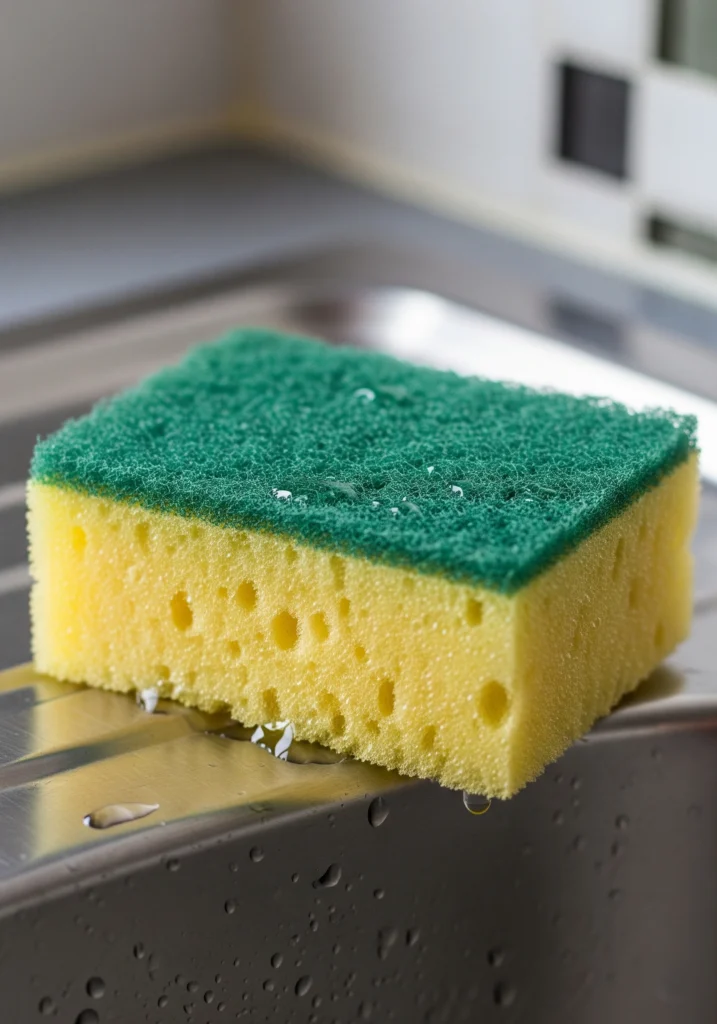
2. Cross-Contaminated Cutting Boards
The Risk:
Using the same cutting board for raw meat, vegetables, and cooked food can lead to dangerous cross-contamination.
Health Effects:
- Food poisoning
- Gastrointestinal infections
What to Do:
- Use separate boards for meat, veggies, and bread.
- Choose plastic or bamboo over old wooden ones.
- Disinfect cutting boards with vinegar or hydrogen peroxide after every use.
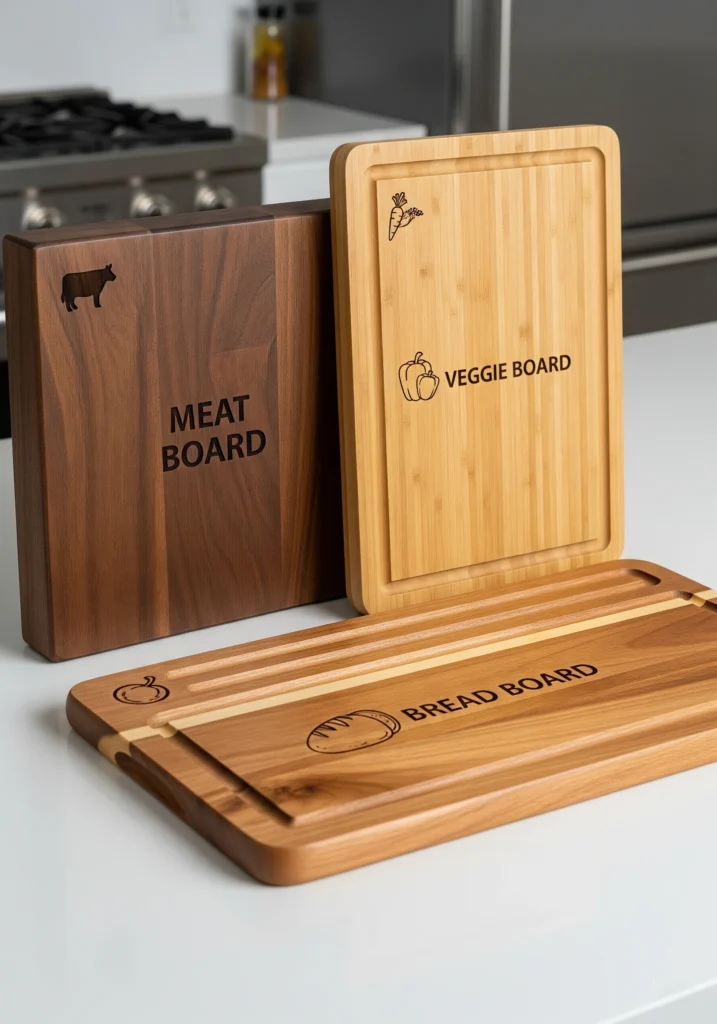
3. Nonstick Cookware with Scratches (Teflon)
Hidden Danger:
Scratched nonstick pans (especially older ones made with Teflon) can release toxic compounds like PFOA into your food when overheated.
Potential Health Issues:
- Hormone disruption
- Liver damage
- Possible carcinogenic effects
What to Do:
- Replace scratched nonstick pans.
- Switch to ceramic, cast iron, or stainless steel cookware.
4. Plastic Food Containers and Wraps
What’s the Issue?
Old or low-quality plastic containers often contain BPA or phthalates, which can leach into your food especially when microwaved.
Health Risks:
- Endocrine disruption
- Increased cancer risk
- Fertility issues
Solutions:
- Avoid microwaving in plastic.
- Switch to glass containers or stainless steel lunchboxes.
- Look for BPA-free labels.
5. Expired Pantry Items
Sneaky Offenders:
You might be surprised how many spices, grains, canned goods, and condiments are expired or improperly stored.
Risks:
- Mold exposure
- Bacterial growth
- Loss of nutritional value
Prevention Tips:
- Check expiry dates monthly.
- Store dry goods in airtight containers.
- Keep spices away from heat and light.
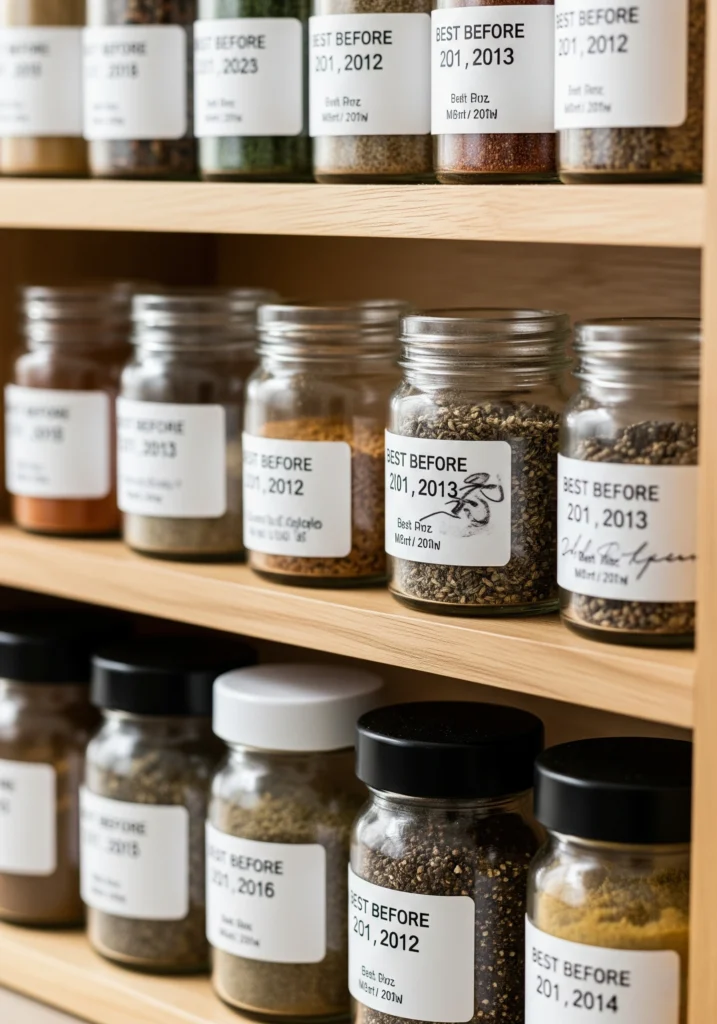
6. Chemical-Laden Cleaning Products
What’s Harmful:
Many conventional kitchen cleaners contain ammonia, chlorine, and synthetic fragrances that can irritate the lungs and skin.
Common Symptoms:
- Headaches
- Respiratory issues
- Skin allergies
Safer Alternatives:
- Use vinegar, baking soda, lemon, or eco-friendly cleaners.
- Ventilate your kitchen during and after cleaning.
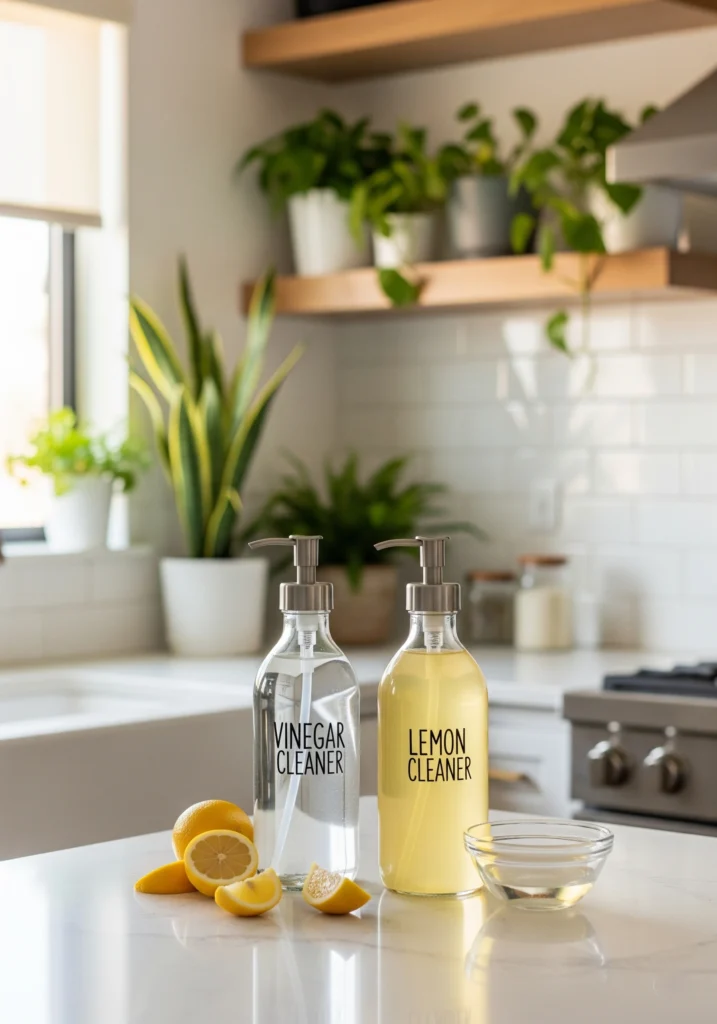
7. Unwashed Fruits and Vegetables
Why It’s Dangerous:
Even organic produce can carry pesticides, dirt, and harmful bacteria like listeria or E. coli.
Health Issues:
- Stomach infections
- Parasites
- Foodborne illnesses
Best Practices:
- Wash thoroughly under running water.
- Use a veggie wash spray or soak in baking soda water.
- Scrub firm produce with a brush.
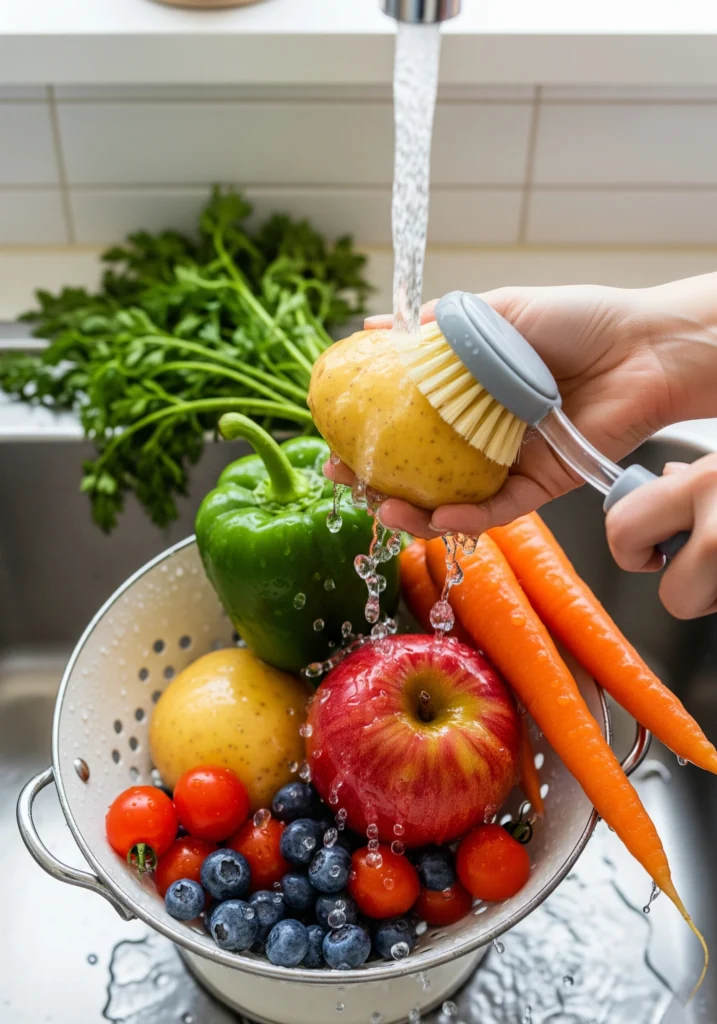
8. Dirty Refrigerator and Freezer
The Hidden Hazard:
The refrigerator can harbor mold, bacteria, and cross-contamination if not cleaned regularly.
Signs of Trouble:
- Unpleasant odor
- Frost buildup in freezer
- Sticky or moldy shelves
How to Fix:
- Deep-clean every 1–2 months.
- Keep raw meats on bottom shelves.
- Use airtight containers and label leftovers with dates.
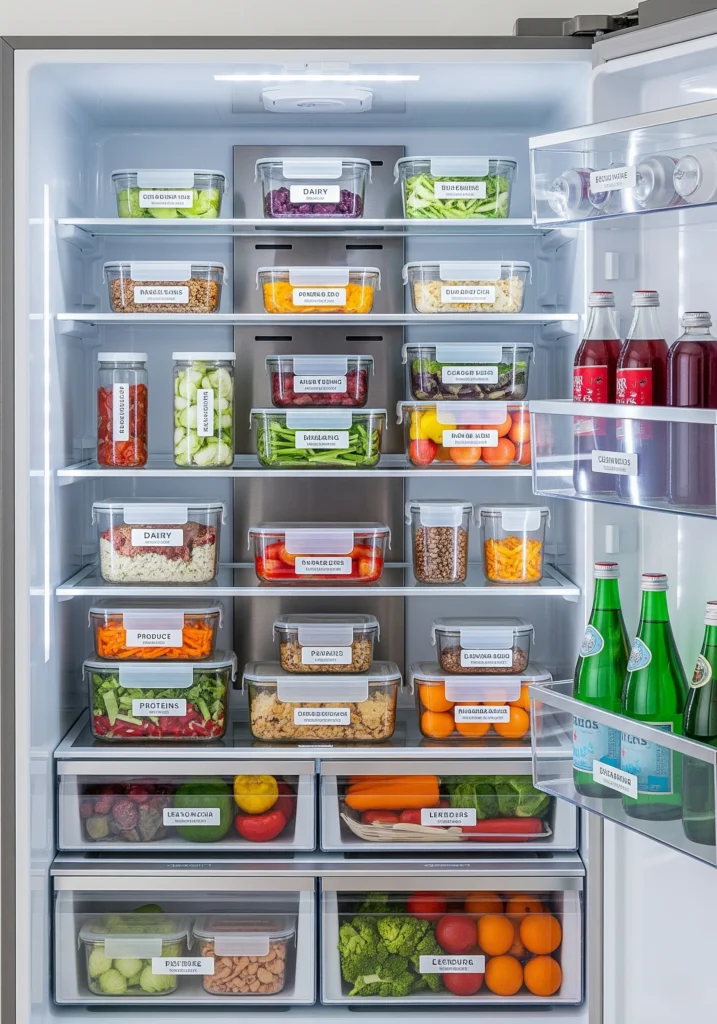
9. Cooking Oils Stored Improperly
The Issue:
Oils like olive, avocado, or nut oils can go rancid quickly if exposed to heat or light, releasing free radicals.
Risks:
- Inflammation
- Oxidative stress
- Stomach upset
What to Do:
- Store oils in dark glass bottles in a cool cupboard.
- Smell your oil as rancid oil smells bitter or soapy.
- Use within 6–12 months of opening.
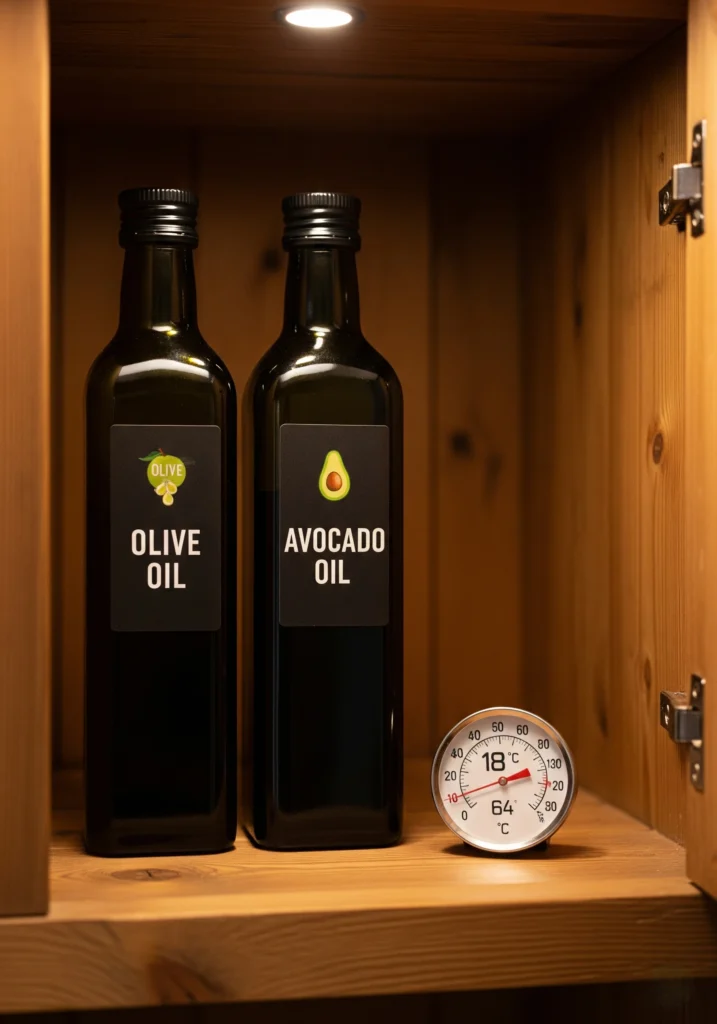
10. Overused Aluminum Foil and Baking Sheets
The Problem:
Frequent cooking with aluminum foil or scratched baking sheets can leach trace metals into your food especially when used with acidic ingredients.
Potential Issues:
- Neurotoxicity (long-term aluminum exposure)
- Metal taste in food
- Inflammation
Healthier Alternatives:
- Use parchment paper or silicone baking mats.
- Replace scratched or stained baking sheets.
- Avoid using foil for tomato or lemon-based dishes.
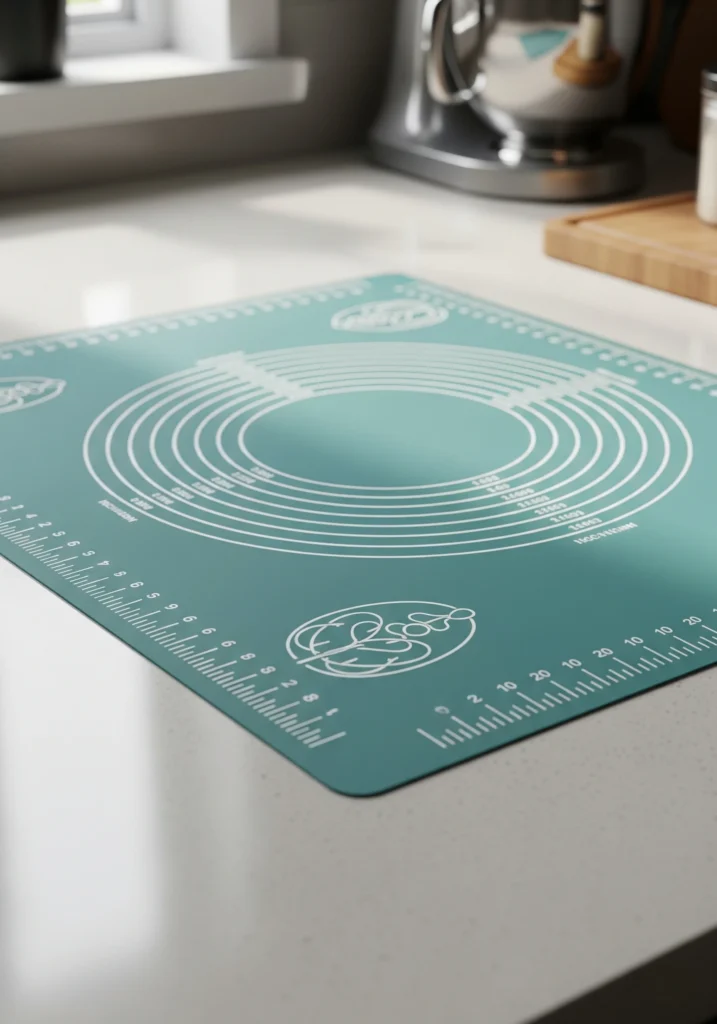
Tips for a Healthier Kitchen
- Install a water filter to avoid heavy metals and contaminants in your tap water.
- Sanitize handles and knobs as they’re often overlooked during cleaning.
- Ventilate while cooking to reduce smoke and fumes.
- Switch to organic or eco-friendly dish soap.
- Create a kitchen cleaning schedule to keep everything fresh and food-safe.
Conclusion
Your kitchen should be a place of nourishment and comfort, not a hidden health hazard. By being more mindful of the kitchen things you use daily, the foods you store, and your cleaning habits, you can turn your kitchen into a safer, healthier environment for you and your family.
Small changes like swapping out an old sponge, switching containers, or storing oils properly can have a big impact on your health over time.






